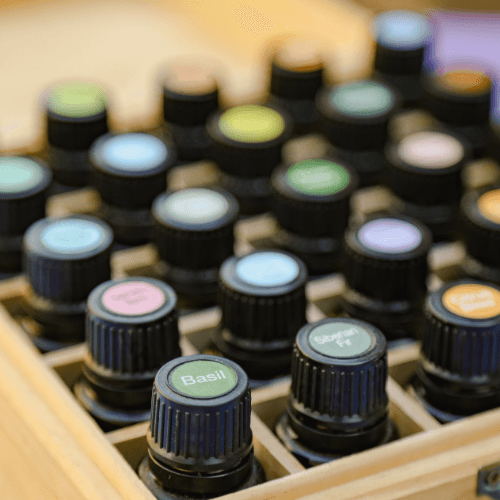Small studies and anecdotal evidence have suggested that some essential oils may benefit people with ADHD.
There is no evidence to suggest that essential oils can be harmful for people with ADHD. A healthcare provider may help a patient to experiment with some oils to see if they relieve symptoms.
Lavender essential oil
A person who is experiencing hyperactivity with ADHD may have trouble feeling relaxed enough to fall, or stay, asleep.
A recent study carried out at the University of Minnesota found that lavender essential oil may improve sleep.
The researchers studied the effectiveness of inhaling lavender essential oil for people with sleep issues.
Results indicated that those participants who inhaled lavender essential oil had a better quality of sleep than those who did not.
The use of inhaled lavender oil appeared to boost the well-being of the users over time.
Vetiver essential oil
If a person with ADHD is having difficulty staying focused, vetiver essential oil may help them to stay alert and on task.
A study in the Journal of Intercultural Ethnopharmacology has measured the direct effects that inhaling vetiver essential oil has on the brain.
Those who inhaled vetiver essential oil showed an increase in their attention levels, and this was reflected in measurements of brain activity.
The researchers noted that the effects of vetiver essential oil may be beneficial for learning and memory processes. It appears to have a stimulating effect even at low inhaled doses, and it may improve alertness and task performance.
Rosemary essential oil

The fresh scent of the common cooking ingredient rosemary may help to keep the mind sharp.
A studyTrusted Source posted to Therapeutic Advances in Psychopharmacology looked at the effects of one of the main compounds in rosemary essential oil, called 1,8-cineole.
The research showed that a higher concentration of this compound in the body resulted in better performance on cognitive tests.
The results were noted in both speed and accuracy. People with higher levels of the compound in their body described themselves as feeling more content.
More studies are necessary to confirm the findings.
Other essential oils
Other essential oils have been used by many people for many different symptoms of ADHD, with varying results.
Essential oils that may be useful include:
- Frankincense
- Ylang ylang
- Bergamot
- Eucalyptus
- Lemon
- Cedarwood
One study reports that hospice patients who received a hand massage using oils containing bergamot, frankincense, and lavender, for example, felt relief from symptoms of depression, although the effect on the separate components was not studied.
Bergamot is thought to have antidepressant qualities, and a combination of clary sage and ylang ylang may also lift mood.
Cedarwood oil is said to have sedative effects, while some claim that both lemon and frankincense oils can improve focus.
However, there is not enough scientific evidence to confirm the benefits.
How to use them
Essential oils are highly concentrated and should therefore be used with care. Before starting to use any essential oil, a physician can advise about any possible interactions with other medications.
Here are three appropriate ways to use essential oils:
- Inhaling by adding a few drops to an aromatherapy diffuser
- Applying diluted oils topically, to be absorbed through the skin
- Putting a few drops into a full bath or a hand or foot bath
It is important to dilute essential oils with a carrier oil before putting them on the body. Examples of carrier oils include olive, coconut, and grapeseed oil.
The high concentrations of compounds in the oils can cause reactions if applied undiluted anywhere on the body.
It is also important to perform an allergy test. This test can be carried out by applying a small amount of the diluted mixture to a small area of the body, like the back of the hand.
If any signs of allergy such as redness or burning sensations occur, do not use the oil.
Using essential oils for children
Since a child’s body and immune system are still developing, extra care is needed when using essential oils.
Children under 10 years of age are advised not to use essential oils containing 1,8-cineole, such as eucalyptus, rosemary, or peppermint.
The compound can cause reactions in young children and should therefore be avoided.



